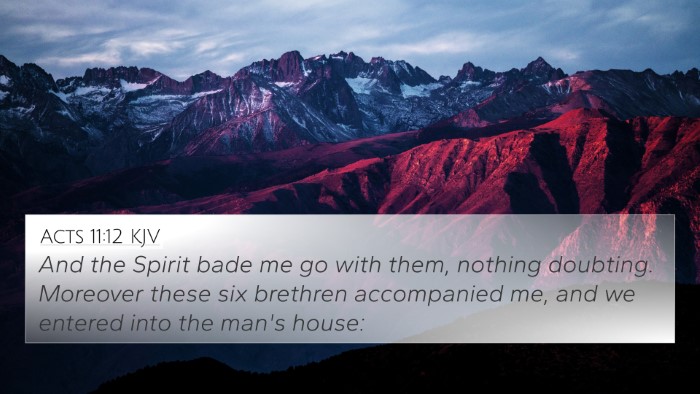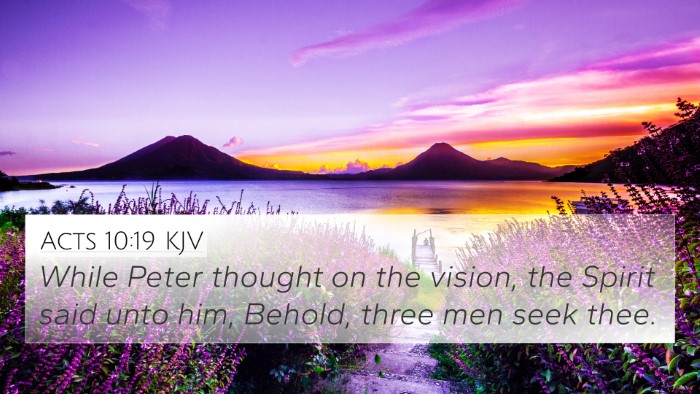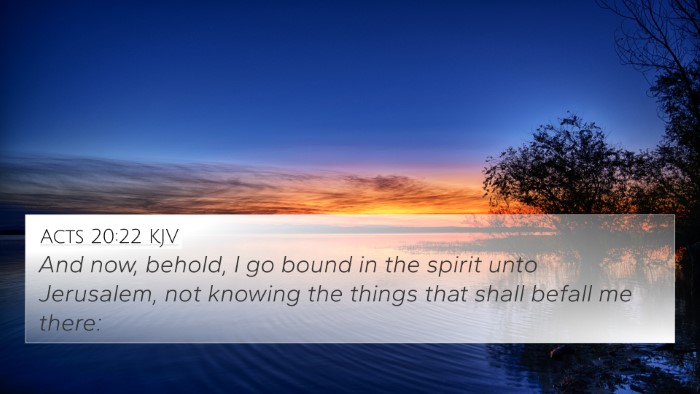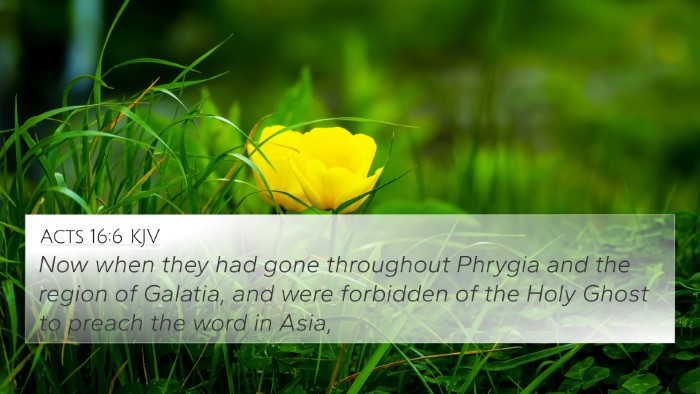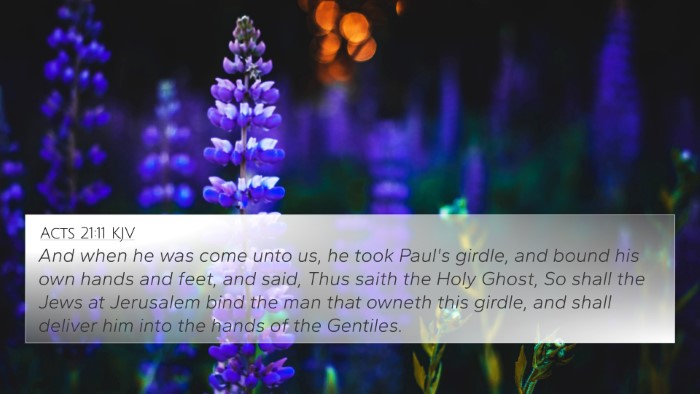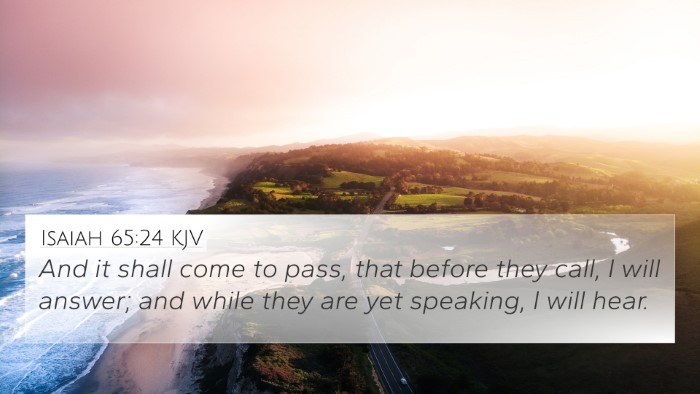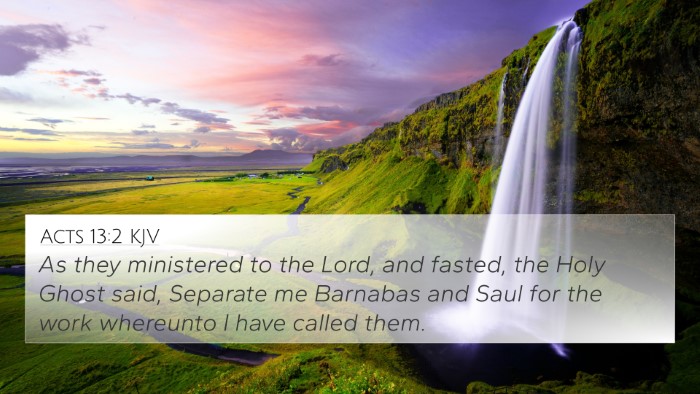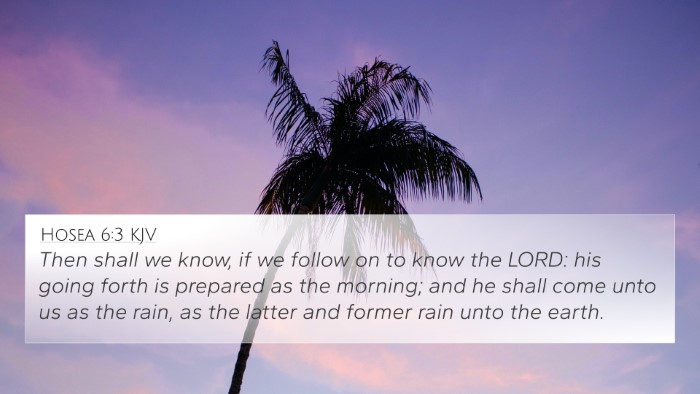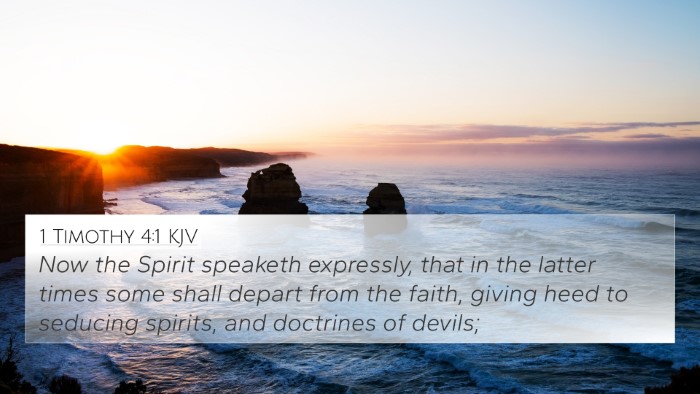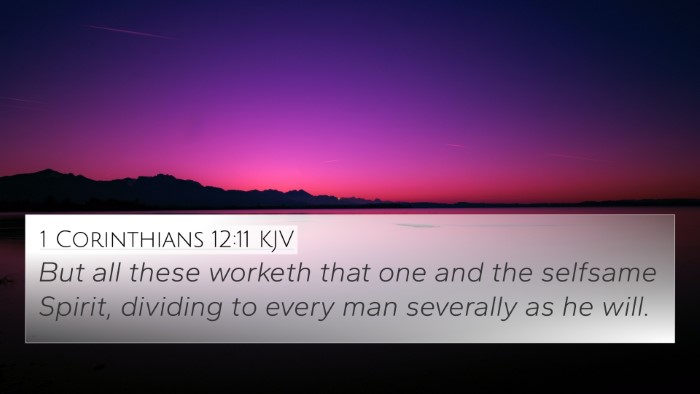Understanding Acts 8:29
Acts 8:29 states: "Then the Spirit said to Philip, 'Go near and overtake this chariot.'" This brief yet significant verse captures a pivotal moment in the ministry of Philip, emphasizing the guidance of the Holy Spirit and the obedience required to fulfill divine appointments.
Verse Meaning and Interpretation
The passage plays a critical role in illustrating the active participation of the Holy Spirit in the lives of believers. Philip’s willingness to respond to the Spirit’s prompt demonstrates the importance of being attuned to divine guidance.
Insights from Commentaries
- Matthew Henry: Commentary suggests that Philip's readiness to act upon the Spirit's guidance shows how believers should remain alert to the influences of the Spirit. By moving towards the chariot, Philip laid the groundwork for a significant evangelistic encounter.
- Albert Barnes: He highlights that the directive given to Philip serves as an example of how God leads His people, often directing them to individuals who are prepared to receive the message of salvation. This reinforces the concept of personal salvation being accessible through divine orchestration.
- Adam Clarke: Clarke emphasizes the necessity of following through with God’s commandments, noting that Philip became a key figure in sharing the Gospel with the eunuch, thereby facilitating the spread of Christianity in Africa.
Key Themes
Acts 8:29 introduces several important themes relevant to understanding spiritual guidance and evangelism:
- Divine Guidance: The mention of the Spirit explicitly directing Philip indicates the necessity of divine direction in our spiritual journey.
- Obedience: Philip’s immediate response illustrates the importance of obedience to God’s call, particularly in evangelism.
- Evangelism: This encounter is pivotal not only for the eunuch's salvation but also for the expansion of the early church's reach beyond Judea.
Bible Verse Cross-References
Acts 8:29 connects with multiple verses illustrating similar themes of divine prompting and evangelism:
- John 16:13: Discusses the role of the Holy Spirit in guiding believers into all truth.
- Acts 10:19-20: Peter receives a vision instructing him to go to Cornelius, further highlighting divine direction.
- Isaiah 30:21: Speaks to the guidance of God as He instructs His people on the path to take.
- Matthew 28:19-20: The Great Commission emphasizes the call to evangelism.
- Romans 10:14: "How then shall they call on Him in whom they have not believed?" This echoes the need for believers to spread the Gospel.
- Acts 1:8: Highlights the empowerment by the Holy Spirit to be witnesses to the ends of the earth.
- Galatians 5:25: Reminds believers to live in accordance with the Spirit, reinforcing the theme of spiritual sensitivity.
Connecting and Linking Bible Scriptures
Understanding Acts 8:29 benefits from comparative Bible verse analysis, as it enhances comprehension of the interconnectedness of scripture. The events of Philip and the eunuch can be better appreciated when examined alongside the Great Commission (Matthew 28:19-20) and instances of divine intervention in the scriptures.
Thematic Bible Verse Connections
Acts 8:29 is also thematically linked to discussions around:
- Divine providence guiding evangelistic efforts
- The necessity of human obedience to God's call
- The role of the Holy Spirit in the early church
Prayerful Reflection
As we meditate on Acts 8:29, it encourages us to seek such guidance in our own lives. Are we listening for the whispers of the Holy Spirit, urging us to approach those who are ready to hear the message of Christ? This challenge calls us to prayerfully consider how we can be conduits of God’s message and actively engage in spreading the Gospel.
Conclusion
Acts 8:29 is a rich verse that beckons believers to remain alert and responsive to the Holy Spirit’s leading. By utilizing tools for Bible cross-referencing, one can draw deeper connections and integrate the insights from various passages, fostering a profound understanding that enriches one’s spiritual journey.
Final Thoughts
In conclusion, Acts 8:29 highlights the interplay between divine instruction and human response, a theme prevalent throughout the Bible. Engaging in cross-referencing Biblical texts, believers can explore the dynamic relationships between scripture, enhancing their understanding and fulfilling the Great Commission.



